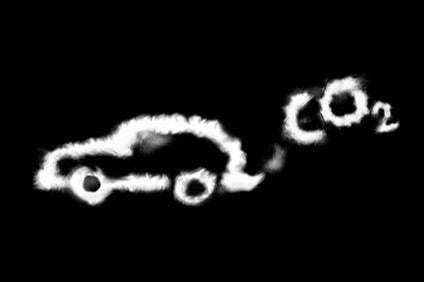
The US Environmental Protection Agency (EPA) is planning to relax federal fuel efficiency standards set up by the Obama administration, although no details are available yet. The statement of intent from EPA administrator Scott Pruitt reflects views expressed by President Trump and opens up the possibility of conflict between the US federal government and the state of California, a leading proponent of clean air standards.
In a statement, EPA administrator Scott Pruitt announced the completion of the Midterm Evaluation (MTE) process for the greenhouse gas (GHG) emissions standards for cars and light trucks for model years 2022-2025, and his ‘final determination that, in light of recent data, the current standards are not appropriate and should be revised’. Administrator Pruitt is also announcing the start of a joint process with the National Highway Traffic Safety Administration (NHTSA) to develop a notice and comment rulemaking to ‘set more appropriate GHG emissions standards and Corporate Average Fuel Economy (CAFE) standards’.

Discover B2B Marketing That Performs
Combine business intelligence and editorial excellence to reach engaged professionals across 36 leading media platforms.
“The Obama Administration’s determination was wrong,” said EPA Administrator Scott Pruitt. “Obama’s EPA cut the Midterm Evaluation process short with politically charged expediency, made assumptions about the standards that didn’t comport with reality, and set the standards too high.”
Under the Clean Air Act (CAA), EPA sets national standards for vehicle tailpipe emissions of certain pollutants. Through a CAA waiver granted by EPA, California can impose stricter standards for vehicle emissions of certain pollutants than federal requirements. The California waiver is still being re-examined by EPA under Administrator Pruitt’s leadership.
“Cooperative federalism doesn’t mean that one state can dictate standards for the rest of the country. EPA will set a national standard for greenhouse gas emissions that allows auto manufacturers to make cars that people both want and can afford — while still expanding environmental and safety benefits of newer cars. It is in America’s best interest to have a national standard, and we look forward to partnering with all states, including California, as we work to finalise that standard,” said Pruitt.
Reuters reported that while Pruitt is a big proponent of US states’ rights to regulate themselves, he firmly opposes California’s push for greener cars.
The news agency also noted that California Governor Jerry Brown has criticised the EPA’s action. “This cynical and meretricious abuse of power will poison our air and jeopardise the health of all Americans,” Brown said.
Mary Nichols, the head of the California Air Resources Board, said her state “will vigorously defend the existing clean vehicle standards.”
Michelle Krebs, executive analyst for Autotrader, said that she does not expect automakers to abandon all plans for cleaner, more fuel-efficient vehicles. “These are global automakers who see the rest of the world marching in a different direction,” she said. “To play in other markets, they must meet the standards of other countries, most notably China, the biggest car market in the world which is demanding cleaner vehicles like electrics. The disconnect in the US is that consumers don’t favour clean, highly fuel-efficient vehicles like electrics and hybrids, particularly as gas prices remain low and consumers opt for sport-utility vehicles. EV and hybrid sales account for a miniscule 3 percent or less of the entire new-car market annually.”
Rebecca Lindland, executive analyst for Kelley Blue Book, highlighted the potential problems of a waiver for the state of California. “The key to cleaner air and adoption of cleaner vehicles is a single, national standard with a flexible credit program,” she said. “A separate set of rules under the California waiver representing 40% of the new vehicle market will only complicate matters and lead to higher prices of new cars and trucks for the entire nation. Consumers may be priced out of the market, forcing a buyer to purchase a used car or keep an existing, less clean vehicle longer, further delaying the greening of the fleet.”






